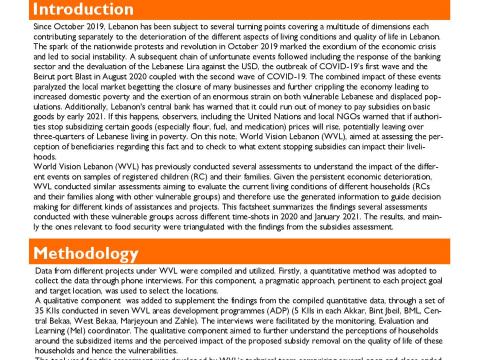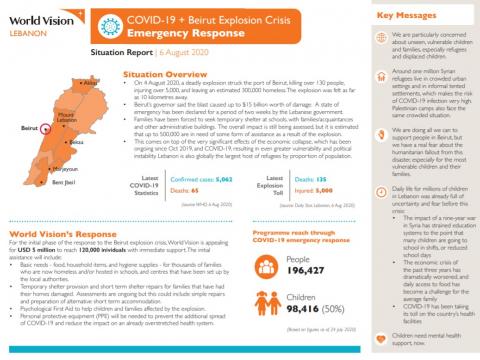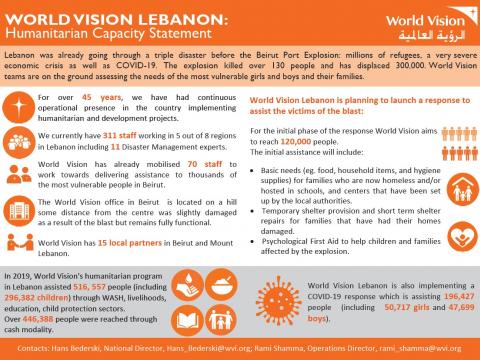World Vision Lebanon Vulnerability Screening
Download
Since October 2019, Lebanon has been subject to several turning points covering a multitude of dimensions each contributing separately to the deterioration of the different aspects of living conditions and quality of life in Lebanon. The spark of the nationwide protests and revolution in October 2019 marked the exordium of the economic crisis and led to social instability. A subsequent chain of unfortunate events followed including the response of the banking sector and the devaluation of the Lebanese Lira against the USD, the outbreak of COVID-19’s first wave and the Beirut port Blast in August 2020 coupled with the second wave of COVID-19. The combined impact of these events paralyzed the local market begetting the closure of many businesses and further crippling the economy leading to increased domestic poverty and the exertion of an enormous strain on both vulnerable Lebanese and displaced populations. Additionally, Lebanon's central bank has warned that it could run out of money to pay subsidies on basic goods by early 2021. If this happens, observers, including the United Nations and local NGOs warned that if authorities stop subsidizing certain goods (especially flour, fuel, and medication) prices will rise, potentially leaving over three-quarters of Lebanese living in poverty. On this note, World Vision Lebanon (WVL), aimed at assessing the perception of beneficiaries regarding this fact and to check to what extent stopping subsidies can impact their livelihoods.

